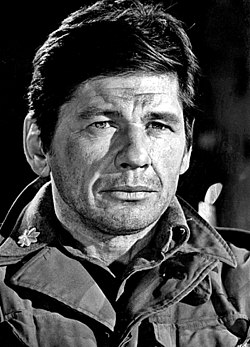The Life and Legacy of Charles Bronson

Introduction: The Man Behind the Legend
Charles Bronson, born Charles Dennis Buchinsky in 1921, is renowned as one of the most iconic figures in action cinema. His rugged persona and captivating performances won him a devoted fan base, and he became synonymous with the strength and resilience of the tough-guy archetype. With a career spanning over five decades, Bronson remains a significant influence in the film industry, continuing to inspire actors and filmmakers alike.
Career Highlights
Bronson’s rise to stardom began in the 1950s, but it was with films like “The Magnificent Seven” (1960) that he attained widespread recognition. Throughout the 1970s and 80s, his performances in films like “Death Wish” (1974) solidified his status as a quintessential action hero. “Death Wish” was especially notable for its themes of vigilante justice, resonating with audiences in a time of rising crime rates in urban America. Bronson’s portrayal of Paul Kersey, a man who takes the law into his own hands after a personal tragedy, became a cultural touchstone and spawned multiple sequels, showcasing the character’s deep impact on the action genre.
Personal Life and Influence
Beyond his on-screen persona, Bronson’s life story is equally compelling. Born into a Lithuanian immigrant family in Pennsylvania, he served in the US Army during World War II, an experience that shaped his worldview. Bronson married twice, first to actress Harriet Tendler and later to Jill Ireland, with whom he shared a profound bond. His personal experiences lent authenticity to his characters, drawing on themes of loss, redemption, and relentless perseverance.
Enduring Legacy
Even years after his passing in 2003, Charles Bronson’s influence endures. His movies have been remade, and his tough-guy image has been referenced in countless works across different media. New generations are introduced to his classic films, ensuring that his legacy carries on in modern cinema. His approach to action—focusing on grit and realism—changed the landscape of how characters are portrayed in films, paving the way for a new breed of heroes.
Conclusion
In summary, Charles Bronson is not just a film star; he is an enduring symbol of a bygone era of cinema where tough, no-nonsense heroes ruled the big screen. His profound impact on the action genre continues to influence filmmakers and actors, embodying themes that resonate with audiences. As film enthusiasts revisit his iconic roles, Bronson’s legacy remains firmly etched in the history of cinema, reminding us of the compelling stories of strength, survival, and revenge that defined his career.









